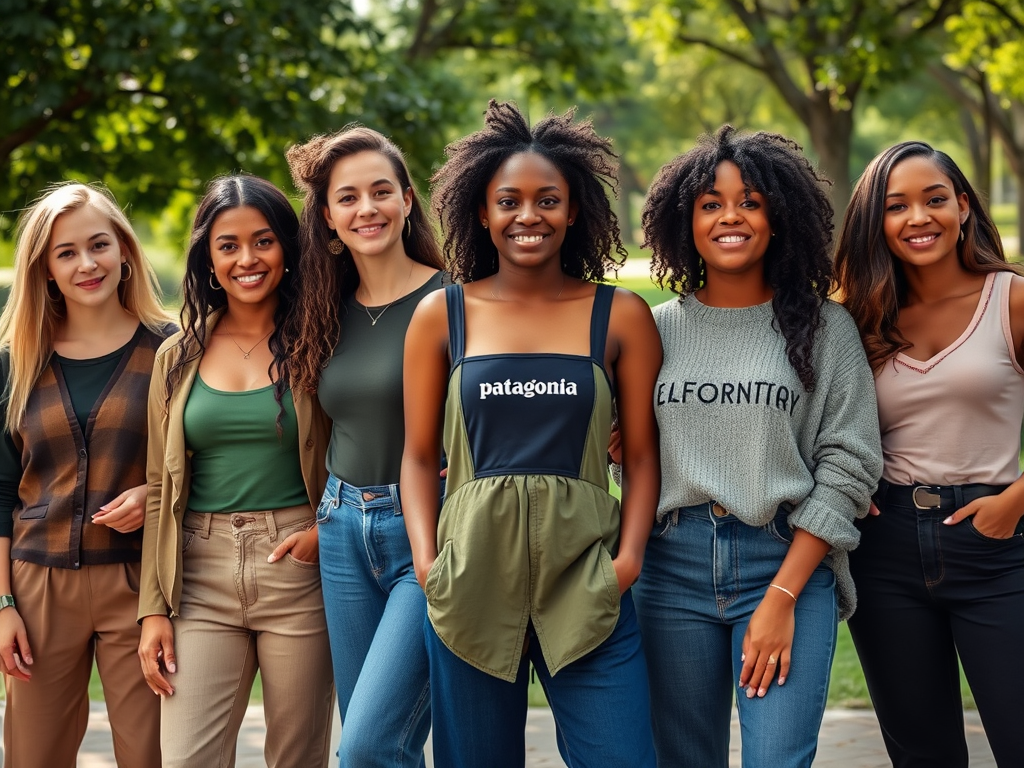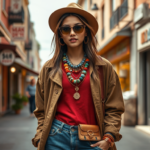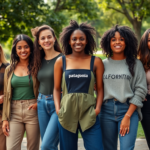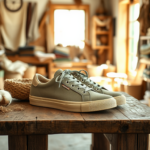The fashion landscape in 2025 is a dynamic tapestry woven from the threads of sustainability, technology, and individualism. More than ever, women are seeking brands that reflect their values—whether that’s a commitment to eco-friendly practices or the embrace of groundbreaking technology in the shopping experience. It’s a year where the clothing choices available not only express personal style but align with larger movements toward sustainability and ethical production. As we navigate through this vibrant fashion terrain, several key players stand out, setting trends and influencing consumer behavior. This guide will delve into the notable female clothing brands that are making waves this year, offering insights into what makes them significant.
In the world of female fashion, brand loyalty can often be a reflection of shared values and aesthetics. For many, wearing a brand is more than just a fashion statement—it’s a personal philosophy. In this guide, we’ll explore popular female clothing brands of 2025 across diverse categories, from luxe labels to sustainable choices and even the latest innovations in fashion startups.
Top Female Clothing Brands to Watch in 2025

Sustainable Fashion Leaders
As conversations about climate change continue to escalate, sustainability in fashion has transitioned from a niche concept to a mainstream necessity. Brands that prioritize eco-friendly practices are gaining traction among environmentally-conscious consumers. The following brands have earned their place as leaders in sustainable women’s fashion:
- Patagonia: This brand is celebrated for its dedication to environmental ethics, consistently pioneering innovations that minimize its ecological footprint.
- Reformation: Known for its chic designs, Reformation focuses on eco-conscious materials and offers transparency in its production processes.
Affordable Fast Fashion
Despite the growing trend towards sustainability, the demand for trendy yet budget-friendly options remains robust. Fast fashion has adapted by integrating sustainability into their business models, aiming to attract younger consumers who want to look stylish without breaking the bank. Here are a couple of brands that are still renowned in this space:
- Zara: With its fast-turnaround approach, Zara continuously updates its collections to reflect current trends, making it a favorite among fashion enthusiasts.
- H&M: A go-to retailer for both trendy pieces and classic staples, H&M incorporates recycled materials into its production to appeal to eco-conscious buyers.
Noteworthy Emerging Brands

New players are entering the fashion scene, introducing fresh perspectives and innovative practices. These startups are not just about aesthetics but also emphasize sustainability and versatility. Below is a selection of newcomers that are gaining recognition:
- Alohas: Offering stylish footwear and accessories, this brand is notable for its commitment to artisanal craftsmanship paired with sustainable practices.
- Vetta: Specializing in capsule wardrobes, Vetta designs pieces that can be styled in multiple ways, catering to women who value versatility.
| Brand Name | Focus Area | Notable Feature |
|---|---|---|
| Patagonia | Sustainable Fashion | Environmental ethics commitment |
| Reformation | Sustainable Fashion | Transparent production process |
| Zara | Fast Fashion | Rapid style turnover |
| H&M | Fast Fashion | Incorporation of recycled materials |
| Alohas | Emerging Brand | Focus on artisanal craftsmanship |
| Vetta | Emerging Brand | Versatile capsule wardrobes |
Impact of Technology on Clothing Brands
Influence of E-commerce
The retail landscape has been transformed by the rise of e-commerce, enabling brands to connect with consumers in wholly new ways. Brands are leveraging data analytics and advanced algorithms to curate personalized shopping experiences. This has made the discovery of styles that resonate with individual preferences more accessible than ever. In 2025, online shopping is not merely about convenience; it’s a sophisticated interaction between consumer and brand. The result is a dynamic marketplace where trends can emerge and fade at an astonishing pace.
Virtual Reality and Fitting Rooms
Another technological advancement shaping the fashion shopping experience is the use of virtual reality. Brands are embracing this technology through virtual fitting rooms that allow customers to visualize how clothing will look on their bodies. This innovation not only enhances customer satisfaction but also significantly reduces return rates, benefiting both brands and consumers. Shoppers are now empowered to make informed decisions, which cultivates a more rewarding shopping experience.
Conclusion
The world of female clothing brands in 2025 is marked by a rich diversity and an ever-evolving landscape. From established luxury powerhouses to revolutionary startups, consumers are presented with a myriad of options that cater to various tastes and ethics. Understanding these brands and their unique positions in the market opens new avenues for fashion-conscious individuals. Whether it’s eco-friendly practices or cutting-edge technology, each brand holds a piece of the puzzle that defines modern femininity in fashion.
Frequently Asked Questions
- What are the most popular sustainable clothing brands in 2025?
- Patagonia
- Reformation
- Which fast fashion brands are trending this year?
- Zara
- H&M
- What luxury clothing brands should I know about in 2025?
- Gucci
- Louis Vuitton
- How is technology impacting the fashion industry?
- Enhanced e-commerce experiences
- Virtual reality fitting rooms
- Are emerging brands worth considering?
- Yes, brands like Alohas and Vetta offer unique options and emphasize sustainability.





